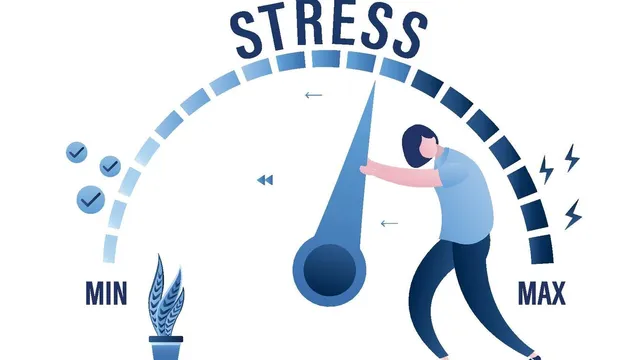
Dr. Allison highlights stress management for team success
2025-04-30 00:00- Stress can be categorized into malignant stress, which negatively impacts confidence, and motivational stress, which promotes growth.
- Dr. Allison emphasizes the importance of managing stress through support and communication to foster team resilience.
- Effective stress management is crucial for personal growth and success in professional environments.
Express your sentiment!
Insights
In various environments, particularly within military contexts, stress manifests in two primary forms: malignant stress, which overwhelms and undermines confidence, and motivational stress, which challenges complacency and fosters growth. Dr. Allison, drawing from his experiences in Iraq, Afghanistan, and Tulsa, delineates these stress types as pivotal in personal and team development. Malignant stress requires proactive management, encouraging team members to take breaks and provide support during crises, while motivational stress drives individuals out of their comfort zones, prompting skill acquisition and resilience. The success derived from facing stress enhances motivation for future challenges. Throughout his military career, Dr. Allison learned that effective communication and trust-building are critical in stressful situations, leading to better outcomes in medical practice and team dynamics. By acknowledging the stressors that individuals face, leaders can create an environment conducive to open communication and trust. Providing support and debriefing after challenging situations allows teams to process their experiences, fostering a cycle of improvement and growth. Dr. Allison’s philosophy emphasizes that dealing with stress is fundamentally a skill that people must practice regularly to build resilience. He notes that stress is often minimized by individuals, but this can hinder personal development and career advancement. Encouraging teams to embrace stress as a necessary element for growth actually cultivates an atmosphere where members can thrive despite challenges. The idea is not to eliminate stress but to manage and leverage it for personal improvement. Ultimately, Dr. Allison's approach highlights the importance of fostering a supportive team environment that acknowledges stress, encourages personal growth, and builds trust. His experiences have shaped his understanding that effective stress management is essential for success in any professional field. As organizations seek to improve performance, recognizing and addressing the different types of stress can be instrumental in creating a resilient workforce capable of tackling future challenges.
Contexts
Team building is a critical component in managing effective communication and collaboration during stressful situations. In high-pressure environments, individuals often experience heightened emotions, fatigue, and uncertainty, which can lead to fragmentation within teams if not properly managed. The importance of fostering a cohesive team dynamic becomes especially evident in such contexts. Team building activities serve as a foundation for cultivating trust, understanding, and a supportive atmosphere, enabling team members to rely on one another during turmoil. Moreover, developing strong interpersonal relationships can mitigate stress and enhance overall morale, leading to improved performance and productivity when challenges arise. In stressful situations, teams that have engaged in team building exercises are better equipped to respond swiftly and cohesively. These groups leverage previously established relationships and a sense of camaraderie, which facilitate open communication and innovative problem-solving. Team building initiatives often include collaboration-focused activities that teach individuals to identify strengths and weaknesses within the team, thus cultivating an environment where all voices are heard and valued. When team members understand each other's capabilities, they can allocate tasks more efficiently according to individual strengths, improving the overall efficacy of the team in critical moments. Moreover, team building promotes the cultivation of resilience, which is essential in stressful situations. Through engaging in activities that encourage teamwork, members learn to navigate conflicts, develop coping strategies, and build positive mindsets. Resilient teams are not only better prepared to face immediate crises, but they also learn from their experiences, evolving and adapting their strategies for future challenges. Effective team building fosters a culture of continuous improvement and mutual support, which is vital in maintaining a united front during adversities. In conclusion, team building is not just a functional necessity in normal circumstances, but it becomes paramount in stressful situations where the stakes are high. Organizations that prioritize team development create environments where collaboration and trust flourish, resulting in teams that can withstand the pressures of crises. By investing in team building, organizations not only safeguard their employees' well-being but also enhance their operational effectiveness. Ultimately, strong teams emerge as a formidable force capable of navigating the complexities of high-stress environments, ensuring both individual and collective success.